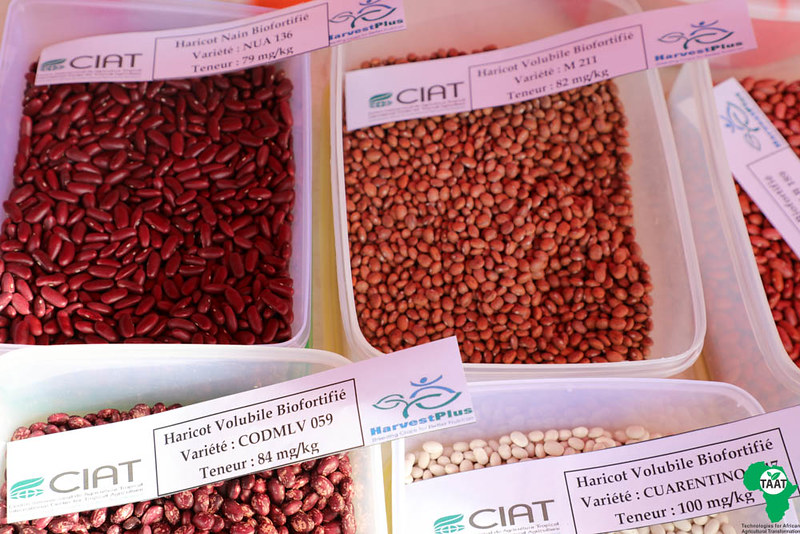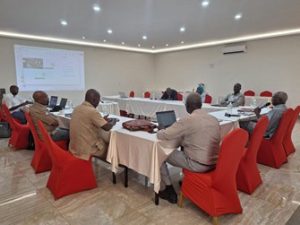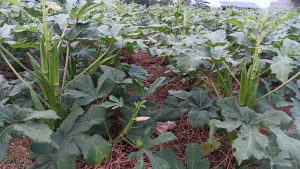TAAT and VACS: Driving African food systems transformation with climate-resilient and nutrient-dense crops

A pivotal side event on the sidelines of the Africa Food Systems Summit in Kigali, Rwanda, brought together experts and leaders to explore strategies for advancing Africa’s food systems through the Technologies for African Agricultural Transformation (TAAT) and the Vision for Adapted Crops and Soils (VACS).
In her opening remarks, Professor Lindiwe Majele Sibanda, Chair of the CGIAR System Board, praised the African Development Bank (AfDB) for its unwavering commitment to agricultural transformation.
She pointed to the success of initiatives like TAAT and VACS in driving agricultural progress in countries such as Zimbabwe and Rwanda. Professor Sibanda emphasized the need to incorporate climate-resilient and nutrient-dense crops such as millet, sorghum, and cassava into Africa’s food systems, recognizing their critical role in enhancing both food security and sustainability.
Dr. Agnes Kalibata, President of the Alliance for a Green Revolution in Africa (AGRA), added her perspective on the resilience of African agriculture in the face of global crises.
She urged greater investment in indigenous crops naturally adapted to African climates and cultural practices and called for a return to sustainable agricultural techniques that prioritize environmental stewardship.
Donald Brown, Associate Vice President of the International Fund for Agricultural Development (IFAD), expressed pride in IFAD’s collaboration with TAAT and VACS.
He noted smallholder farmers’ vital role in producing over 60% of Africa’s food and emphasized IFAD’s commitment to scaling up innovations such as drought-resistant crops and sustainable soil management practices across the continent.
The panel discussion that followed featured a variety of voices, each contributing unique insights into Africa’s agricultural future.
Professor Abdulai Jalloh, representing Sierra Leone’s Ministry of Agriculture, shared the country’s “Feed Salone” strategy, designed to diversify crop varieties and improve technology adoption in the fight against food insecurity.
Michael Patrick from the U.S. State Department highlighted the importance of strategic partnerships that blend local capacities with international support, focusing on traditional African crops.
Dr Bernard Vanlauwe, Deputy Director General of the International Institute of Tropical Agriculture (IITA), focused on soil health and fertilizer use, emphasizing that effective soil management requires a mix of inputs, including organic materials, fertilizers, and context-specific practices.
He shared examples from Nigeria, where integrated soil fertility management involving dual-purpose crops like soybean led to improved yields with reduced fertilizer input.
Gerald Mweli, Permanent Secretary in Tanzania’s Ministry of Agriculture, underscored the impact of digital innovations like online marketing platforms and digital extension services, which have significantly improved farmer earnings and productivity.
Several key takeaways emerged from the session, emphasizing the role of innovative technologies and tailored strategies in advancing Africa’s food systems.
One of the most significant lessons was the need to focus on wealth creation for farmers, particularly in countries like Tanzania, where policy shifts aim to enhance rural livelihoods and boost export revenues.
Digital innovations, such as digital extension services and online marketing platforms, are transforming agricultural practices in Africa. They provide farmers with real-time support and access to fair markets.
Furthermore, the discussion highlighted the importance of soil health, with investments in tailored soil management practices proving essential for long-term productivity and sustainability.
During the Q&A session, participants raised concerns about knowledge accessibility for small and medium-sized enterprises (SMEs) in Uganda and the availability of heat-tolerant tomato varieties in northern Nigeria.
These discussions underscored the need for robust online platforms to facilitate sharing best practices and solutions to the multifaceted challenges facing African agriculture.
Mr Innocent Musabyimana, Chief Agricultural Technologies Officer and TAAT Coordinator at AfDB, concluded the session by reinforcing the importance of continued innovation, strategic partnerships, and sustainable agricultural practices in transforming Africa’s food systems.
He called for further collaboration among stakeholders to scale initiatives that enhance productivity and food security, particularly through the involvement of the private sector and government policies that foster innovation.
The side event concluded with a hopeful outlook. Participants were inspired to implement tangible strategies that could contribute substantially to the ongoing transformation of Africa’s agricultural sector.
The discussions reaffirmed the necessity of collaborative endeavours to ensure that Africa’s food systems meet the continent’s increasing demands and thrive in the face of global challenges.
TAAT has scaled up the dissemination of heat-tolerant wheat varieties, drought-tolerant maize, high-yielding rice, cassava, high-iron bean, sorghum, millet, orange-fleshed sweet potato varieties and high-quality livestock breeds, and fingerlings to more than 12 million farmers, boosting crop production by an estimated 25 million tonnes. This increase in food production is a testament to the programme’s effectiveness in enhancing agricultural productivity across the continent.
TAAT acquires cutting-edge technologies from developers and agricultural research institutions led by the CGIAR for several agricultural value chains covering crops, livestock and fisheries, vets them for scaling readiness and integrates them into its electronic technology catalogue. TAAT engages governments to integrate proven technologies into their large-scale agricultural investment programmes and partner with the private sector to commercialise them.
Recent Stories
Related Stories
- African Development Bank approves phase II of TAAT programme
- TAAT wins National Association of Black Journalists Salute to Excellence Award
- TAAT records transformational breakthroughs in African agriculture as Phase I ends
- TAAT and the imperatives of food systems transformation in Benin
- TAAT facilitates seed roadmap to boost agricultural productivity in Benin





